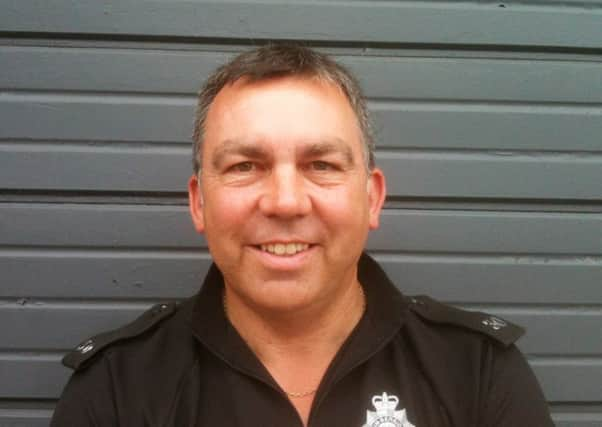Isle drivers warned about drink and drug consequences


Throughout June and July Humberside Police, in partnership with Safer Roads Humber, will be raising awareness to reduce the incidence of drink and drug driving on our roads and reduce drink and drug drive related collisions and injuries.
Through continued education and enforcement officers look to change behaviours and attitudes toward drink and drug driving.
Advertisement
Hide AdAdvertisement
Hide AdNationally drink and drug driving is still a problem and continued campaigns are necessary to tackle the issue.
During this two-month-long campaign officers will also be testing drivers suspected of being under the influence of drugs using new testing kits following the changes to the drug drive law that came into force in England and Wales in March this year.
The new law makes it illegal to drive with a specific controlled drug in the body above the accepted limit for that drug. This new law provides a more effective tool for police officers when dealing with the dangers posed by drug drivers.
Casualty Reduction Officer Barry Gardner: “All Roads Policing officers are trained to detect drivers who are under the influence of drugs, there are a worrying number of drivers now caught drug driving.
Advertisement
Hide AdAdvertisement
Hide Ad“The new law helps reduce the time, expense and effort involved for the police and the courts when prosecutions fail because of the difficulty of proving that a driver is impaired by a particular drug under current legislation.”
A more intelligence-led approach to drink drivers by officers nationally in 2014 resulted in a reduction in the number of tests carried out, down to 133,996, but a higher failure rate by percentage, with 5885, or 4.39%, failing breath tests.
This ‘intelligence-led approach’ is based on information provided by members of the public and police intelligence systems and is helping officers to pick up on offending in a more efficient way.
PC Gardener continued: “I would ask that anyone who suspects someone of drink driving through the period of the campaign, and of course throughout the year, to report it to us by phoning 101 or calling Crimestoppers on 0800 555 111.”
Advertisement
Hide AdAdvertisement
Hide AdYounger drivers remain proportionately more likely than their over-25 counterparts to fail a breath-test for driving under the influence, the UK’s national lead for roads policing has said.
Gloucester Police Chief Constable Suzette Davenport was speaking in January 2015 following the release of the national figures for the December 2014 anti-drink-and-drug-driving campaign.
“Younger drivers, who are balancing the development of their skills and responsibilities as drivers with the natural enjoyments and explorations of their formative years as adults, are, unsurprisingly, more likely to take risks, but our message is very simple and very clear – you are breaking the law, you are risking your life and the lives of those around you and the consequences of doing so will plague you for the rest of your life. Do not drive under the influence – it is not worth the risk and you will be caught.”
Officers from across the Humberside force area will carry out breath tests where the officer has reasonable grounds to suspect that a person
Advertisement
Hide AdAdvertisement
Hide Ada) was the driver at the time of a road traffic collision as per force policy.
b) is driving, attempting to drive or being in charge of a motor vehicle on a road or other public place, with alcohol in his/her body, or has committed a moving traffic offence.
c) has been driving or attempting to drive, or has been in charge of a motor vehicle on a road or other public place with alcohol in his/her body.
d) has been driving or attempting to drive, or been in charge of a motor vehicle on a road or other public place and has committed a moving traffic offence.
Advertisement
Hide AdAdvertisement
Hide Ade) where information provided by a member of the public leads to the suspicion that someone may be drink driving.
Drink or Drug Driving - the consequences
Over 50,000 people throughout the UK were dealt with by the police in 2012 for Drink Driving offences. Over 50,000 thought they could get away with it, they thought they wouldn’t get caught.
The penalties for drink or drug driving are the same.
If you are convicted you will receive:
A minimum 12 month driving ban
A criminal record
A fine of up to £5,000 or up to six months in prison or both
The consequences of a drug drive conviction are far reaching and can include:
Job loss
Loss of independence
The shame of having a criminal record
Increase in car insurance costs
Trouble getting in to countries like the USA
Advertisement
Hide AdAdvertisement
Hide AdBarry Gardner added: “During this campaign, or at anytime, if you suspect someone is going to drink and drive you can phone the police on the non-emergency number 101. We will act on information received by members of the public so I would encourage people to report any drink driver to us immediately.”
You can also phone Crimestoppers anonymously on 0800 555 111 or report anonymously on the Crimestoppers website www.crimestopppers-uk.org.